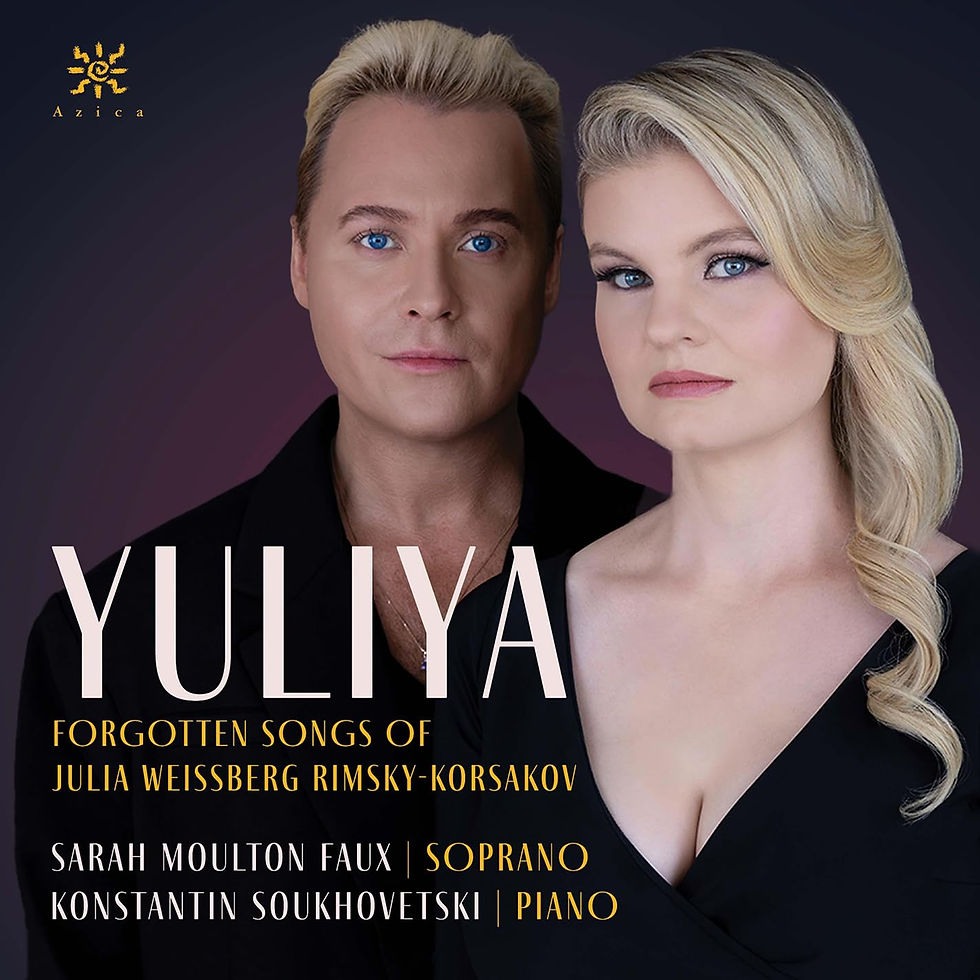Vicky Chow: Opening a New Score
- Jun 19, 2011
- 4 min read
Updated: Jun 17, 2020
Previously published in Sequenza21 June 19, 2011
Speaking with the skilled young pianist about her involvement in the field of new music performance, it is easy to be smitten by the classically trained Juilliard and Manhattan School of Music graduate’s contagious enthusiasm and engaged by her personal insights. During the past two years she has been catching up on a lot of new music repertoire as the pianist/keyboardist of the new music ensemble Bang on a Can All-Stars.

The innovative sextet consists of clarinet, keyboard/piano, cello, electric guitar, bass and drums. The unique interplay—the cello and grand piano are regularly amplified on stage— creates a composite sound world. Half rock band half amplified chamber group, the All Stars are renowned for their successful avant-garde initiative, engaging in new music collaborations with some of the most inspiring composers of our time.
Having collaborated with much of the new music A-list, including Steve Reich, Tan Dun, Ornette Coleman, Philip Glass and Meredith Monk, the band has been hugely successful in a variety of performance projects held at both high-end venues like Carnegie Hall and alternative, sometimes public, performance spaces.
The photos in this article were taken at the sound check of what has become one of the band’s most well-known collaboratives, the Bang on a Can Marathon, an annual, all-day extravaganza held at New York’s World Financial Center’s Wintergarden on June 19. The marathon was Initiated in 1987 by composers David Lang, Julia Wolfe and Michael Garden who wanted to create an all-inclusive “meeting of the bands,” breaking down the barriers between music genres. Co-presented by the River to River Festival and Arts at World Financial Center, in this year’s marathon, 150 performers and composers present a nonstop open house of new music.
But there was another reason that, when upon entering Juilliard, Chow found herself stopped in her tracks. Kaplinsky, chairperson of the Piano Department at Julliard, realized that Chow had been tensing up at the piano and told her she needed to make big adjustments to her technique. Kaplinsky introduced her to the Taubman approach, which explores natural piano technique through an intensive retraining. “I had to learn to arrange myself with a constantly dueling conflict between thinking of what I had to think about in applying the technique and my opposing intuition,” she explains. But to her great delight, her playing improved in the process, making it all worthwhile. Her color and tone, her ability to gain an efficient control of the articulation she intended, opened up a whole new experience for her, she says. “I remember at one point, the fact that I was working with limited repertoire in order to gain the technique fully was so disheartening to me. When the yearly concerto competition in Juilliard was to be held with Bartók’s 1st piano concerto, I decided to take on the challenge. Veda [Kaplinsky] needed convincing, since a month before the competition I only had the 1st movement ready. But in a way she inspired me to push through, and when I won the competition, she was extremely proud of my accomplishment.”
Chow’s thorough exploration of the piano and her new relationship with her instrument whet her appetite for experimentation. Having been approached by the young Juilliard composer Zhou Tian to perform one of his compositions, Chow discovered a calling for the new and non-classical. “As I opened his score, it was clear to me that here was something happening that I had missed for a long time, during all my studies of music. While I loved music and loved performing, I did not exactly see myself spending the rest of my life repeating the experiences that classical music had provided me with. It was in the contemporary music, I found the excitement I was looking for.”

Having found what she was searching for, Chow quickly became a powerhouse within the new music scene. Not only did she become a more versatile pianist, but she also developed a whole new set of musical abilities. “From a pianistic point of view, not only did my sight reading improve from all the creative work with the score I am doing, let alone by the enormous numbers of new scores I read all the time. One of the challenges is that you often have to rely on your own interpretations—even though the composer sometimes intermediates. That’s a very different experience than performing works of composers that have been performed over and over,” says Chow, also confirming that in the challenge lies the thrill of finding new articulation. “Experimenting is part of the experience of new music, and I have gained another set of skills in creating different sounds, influenced by other genres. It also frees your personality to be roughing up some feathers with different sound worlds providing the kind of grit I need.”
For more information about Vicky Chow go to: http://www.vickychow.com/Vicky_Chow/home.html
#SteveReich #OrnetteColeman #AlexLipowsky #BangonaCanAllStars #TaleaEnsemble #LorraineAmbrose #RivertoRiverFestival #JuliaWolfe #VickyChow #ManhattanSchoolofMusic #BangonaCanMarathon #MichaelGarden #DavidLang #JulianMartin #PhilipGlass #MeredithMonk #TanDun #YohevedKaplinsky #InternationalGilmoreKeyboardFestival #ZhouTian #WorldFinacialCenter



Comments